

Fire fighter Cancer Awareness Month 2026
Fire Fighter Cancer Awareness Month
Fire fighter occupational cancer is the leading cause of line-of-duty deaths in the fire service.
Make sure to follow @FCSNNational on Facebook, X, Instagram, and LinkedIn throughout the month for more resources.
In 2025, nearly 80% of IAFF members honored at the IAFF Fallen Fire Fighter Memorial in September 2025 died of occupational cancer. Of the IAFF member line-of-duty deaths, 247 out of 311 were due to occupational cancer.
In Canada, where most provinces and territories have robust presumptive laws, close to 94% of line-of-duty deaths among professional fire fighters are the result of occupational cancers. Canada recognized Fire Fighter Cancer Awareness Month in 2023 with the adoption of MP Sherry Romanado’s Bill C-224.
In partnership with the IAFF, January is designated as Fire Fighter Cancer Awareness Month to provide fire fighters with the tools and guidance to develop life-saving protocols for cancer prevention and to support those with a cancer diagnosis within their departments.
Make sure to follow @FCSNNational on Facebook, X, Instagram, and LinkedIn throughout the month for more resources.
In 2025, nearly 80% of IAFF members honored at the IAFF Fallen Fire Fighter Memorial in September 2025 died of occupational cancer. Of the IAFF member line-of-duty deaths, 247 out of 311 were due to occupational cancer.
In Canada, where most provinces and territories have robust presumptive laws, close to 94% of line-of-duty deaths among professional fire fighters are the result of occupational cancers. Canada recognized Fire Fighter Cancer Awareness Month in 2023 with the adoption of MP Sherry Romanado’s Bill C-224.
In partnership with the IAFF, January is designated as Fire Fighter Cancer Awareness Month to provide fire fighters with the tools and guidance to develop life-saving protocols for cancer prevention and to support those with a cancer diagnosis within their departments.
Firefighter Cancer Awareness Month is focusing on “Doing It Right.” This includes best practices to reduce cancer in the fire service. Since 2005, FCSN has been a lifeline for thousands of cancer-stricken firefighters, offering one-on-one mentoring, critical support, and hope when it is needed most.
Increasing public awareness of occupational cancer in the fire service will help generate greater legislative support for states and provinces to establish presumptive disabilities for all cancers affecting firefighters.
Increasing public awareness of occupational cancer in the fire service will help generate greater legislative support for states and provinces to establish presumptive disabilities for all cancers affecting firefighters.
Join in the conversation on social media using these hashtags:
#FFCancerMonth #FightFFCancer #DoingItRight
Sign up to join our FFCAM email list to receive weekly emails and updates.
FFCAM EMAIL
Sign up to join our FFCAM email list to receive weekly emails and updates.
FFCAM EMAIL
The content on this website is designed to engage fire fighters and fire departments in a unified effort to prevent and reduce the risk of occupational cancer. Our curriculum provides information and tools that educate fire fighters and raise awareness about why cancer cases are increasing in the fire service and how to limit daily exposure to carcinogens.
Each week of the month focuses on a specific theme, and each theme builds upon the previous week. By the end of the month, fire fighters will have the knowledge and resources to understand how fire fighters are exposed to carcinogens, what happens when exposure occurs, how to prevent exposures, how to create culture change in their department, and how to support those diagnosed with cancer.
 Week 1: Know the Threat - Cancer Risks and Exposures
Week 1: Know the Threat - Cancer Risks and Exposures Week 2: Get Checked - Screenings and Early Detection
Week 2: Get Checked - Screenings and Early Detection Week 3: Strengthen Your Defense - Lifestyle & Wellness
Week 3: Strengthen Your Defense - Lifestyle & Wellness Week 4: Behavioral Health and Cancer Diagnosis
Week 4: Behavioral Health and Cancer Diagnosis
We encourage departments to use each week’s content to conduct a weekly safety stand-down focused on reducing the risk of occupational cancer. The provided tools are designed to support meaningful discussions and actionable steps firefighters can take to protect themselves.
Each week’s resources include informative fact sheets, relevant research, Behind the Badge – Survivor Stories that highlight lessons learned, and social media graphics. You will also find guidance to help your department navigate the content and focus on the topics most relevant to your personnel. In addition to weekly materials, 33 training briefs are available as discussion tools to help educate firefighters on reducing occupational cancer risks throughout their careers.
Fire Fighter Cancer Awareness Month takes place in January, but these resources are meant to be used year-round. We encourage you to check back often for updated materials and information on specific topics.
Each week’s resources include informative fact sheets, relevant research, Behind the Badge – Survivor Stories that highlight lessons learned, and social media graphics. You will also find guidance to help your department navigate the content and focus on the topics most relevant to your personnel. In addition to weekly materials, 33 training briefs are available as discussion tools to help educate firefighters on reducing occupational cancer risks throughout their careers.
Fire Fighter Cancer Awareness Month takes place in January, but these resources are meant to be used year-round. We encourage you to check back often for updated materials and information on specific topics.
How To Get Started

How To Get Started:
The content on this website is designed to engage our nation’s firefighters and their fire departments in a mass effort to prevent and reduce their risk of occupational cancer. Our curriculum contains information and tools that educate firefighters and raise awareness about why cancer cases are on the rise in the fire service and how to limit their day-to-day exposures to carcinogens.
Each week of the month focuses on a specific theme. Each theme builds upon the previous week’s theme. By the end of the month, firefighters will have the knowledge and resources to understand how firefighters are exposed to carcinogens, what happens when they are exposed, how to prevent exposures, make culture changes in their department and assist those who are diagnosed with cancer.
Each week of the month focuses on a specific theme. Each theme builds upon the previous week’s theme. By the end of the month, firefighters will have the knowledge and resources to understand how firefighters are exposed to carcinogens, what happens when they are exposed, how to prevent exposures, make culture changes in their department and assist those who are diagnosed with cancer.
 Week 1: Know the Threat - Cancer Risks and Exposures
Week 1: Know the Threat - Cancer Risks and Exposures Week 2: Get Checked - Screenings and Early Detection
Week 2: Get Checked - Screenings and Early Detection Week 3: Strengthen Your Defense - Lifestyle & Wellness
Week 3: Strengthen Your Defense - Lifestyle & Wellness Week 4: Behavioral Health and Cancer Diagnosis
Week 4: Behavioral Health and Cancer Diagnosis
We encourage you to use content from each week to hold weekly a safety stand down in your department.
Use the provided tools to engage firefighters in discussions on steps they can take to reduce the risk of occupational cancer.
The resources for each week include informative factsheets, relevant research, and survivor stories of those who want to share what they have learned to affect change, and social media graphics. It also includes all the information you need to help your department navigate through the content and focus on topics of interest. In addition to weekly content, 33 training briefs can be used as discussion tools to educate firefighters on reducing the risk of occupational cancer.
Fire Fighter Cancer Awareness Month takes place in January, but these resources should be used throughout the year. We encourage you to check back frequently for more information about specific topics.
The resources for each week include informative factsheets, relevant research, and survivor stories of those who want to share what they have learned to affect change, and social media graphics. It also includes all the information you need to help your department navigate through the content and focus on topics of interest. In addition to weekly content, 33 training briefs can be used as discussion tools to educate firefighters on reducing the risk of occupational cancer.
Fire Fighter Cancer Awareness Month takes place in January, but these resources should be used throughout the year. We encourage you to check back frequently for more information about specific topics.

Week 1 Know the Threat - Cancer Risks and Exposures
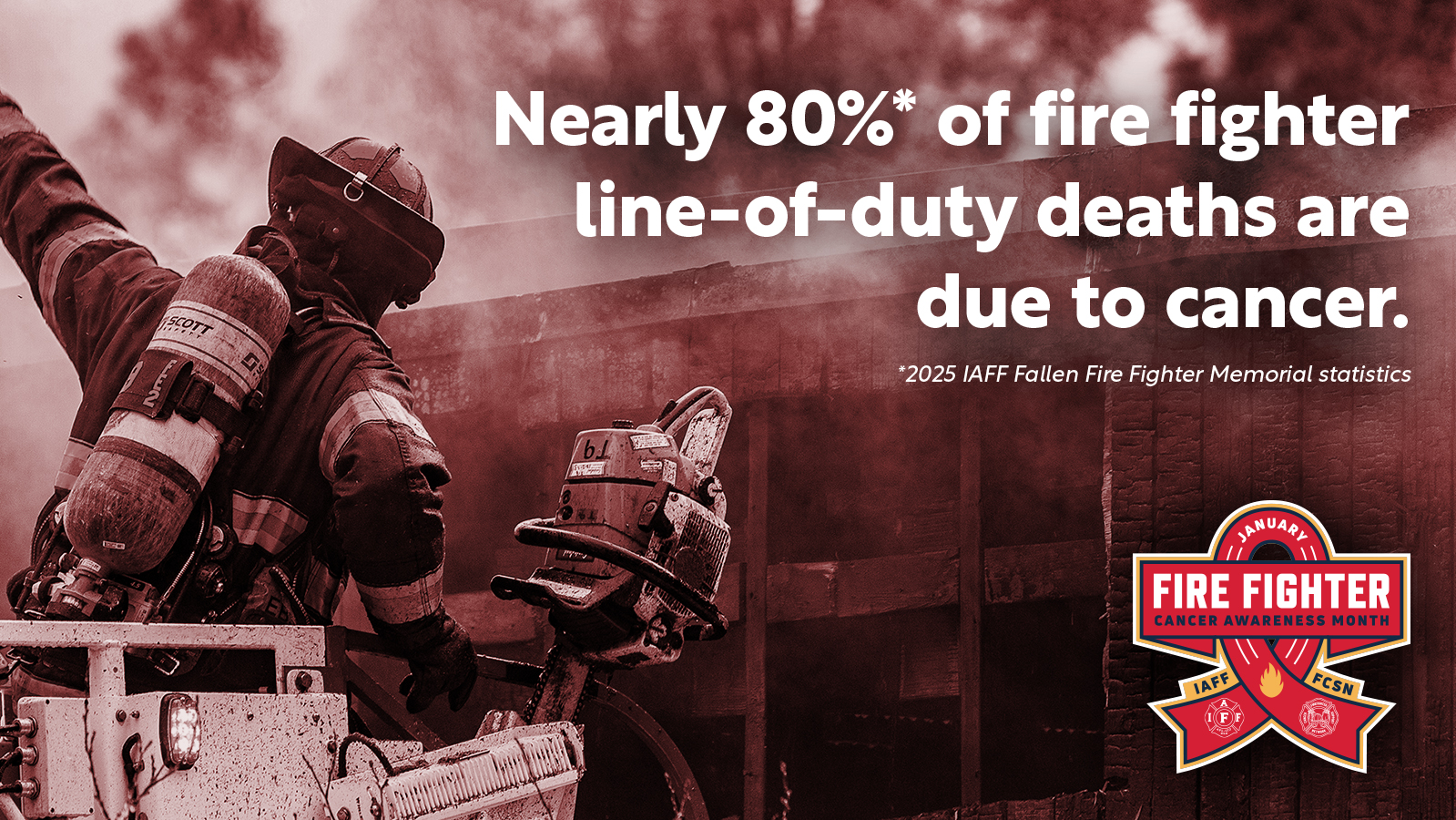
Week 1: Know the Threat – Cancer Risks & Exposures
Driven by repeated exposure to carcinogens on the job, cancer has become a leading threat to the health of firefighters. This week is about awareness and understanding where these risks and exposures come from so that you can better protect yourself. Knowing the threat is the first step in reducing your risk.
This week’s resources focus on identifying exposures both on and off the fireground, the cancer risk associated with these exposures, and how to reduce these exposures. The focus is on every firefighter, from new recruits to retirees.
Behind the Badge Survivor Stories



Factsheets:

Websites

Other Resources

Vector Solutions Webinar Series

Vector Solutions is proud to deliver a three-part webinar series to benefit the Firefighter Cancer Support Network (FCSN). For every webinar registration this January, we will make a $5 donation to the FCSN. The special program will feature experts sharing best practices for prevention, early detection, and PPE safety. To further help departments protect their crews, Vector is also offering its NFPA 1851 Firefighter Cancer Awareness course free throughout Firefighter Cancer Awareness Month. https://info.vectorsolutions.com/firefighter-cancer-awareness-month-2026

Triage Cancer Free Webinar Announcement

During Fire Fighter Cancer Awareness Month, joining the National Firefighter Registry for Cancer is a meaningful way to take action against occupational cancer. The NFR helps researchers better understand how fireground exposures impact cancer risk across the diverse fire service, including groups historically underrepresented in research. By joining, you help protect your brothers and sisters, reduce the impact of cancer on firefighters’ families, and support the development of stronger health and safety measures for the next generation of firefighters.
Week 2: Get Checked – Screenings & Early Detection
Week 2: Get Checked – Screenings & Early Detection
The majority of IAFF members line of duty deaths are from occupational cancer. A cancer diagnosis is the beginning of an incredible challenge. As a firefighter, your risk of contracting cancer is greatly increased.
One strategy for minimizing the impact of cancer is a healthy lifestyle, annual medical evaluations, and cancer screenings. Although the US Preventive Services Task Force publishes screening guidance, a firefighter’s increased risk means that early and more frequent screening may be appropriate.
Understanding how your cancer may or may not be covered by legislative presumptions is important. Likewise, working with representatives in your agency’s workers’ compensation department will be key in getting the benefits defined in your state, province, or territory's laws or statutes.
One strategy for minimizing the impact of cancer is a healthy lifestyle, annual medical evaluations, and cancer screenings. Although the US Preventive Services Task Force publishes screening guidance, a firefighter’s increased risk means that early and more frequent screening may be appropriate.
Understanding how your cancer may or may not be covered by legislative presumptions is important. Likewise, working with representatives in your agency’s workers’ compensation department will be key in getting the benefits defined in your state, province, or territory's laws or statutes.
Gaining this knowledge before your diagnosis would be a big advantage in navigating the process, which is what this week’s topic intends to provide.
Behind the Badge Survivor Stories


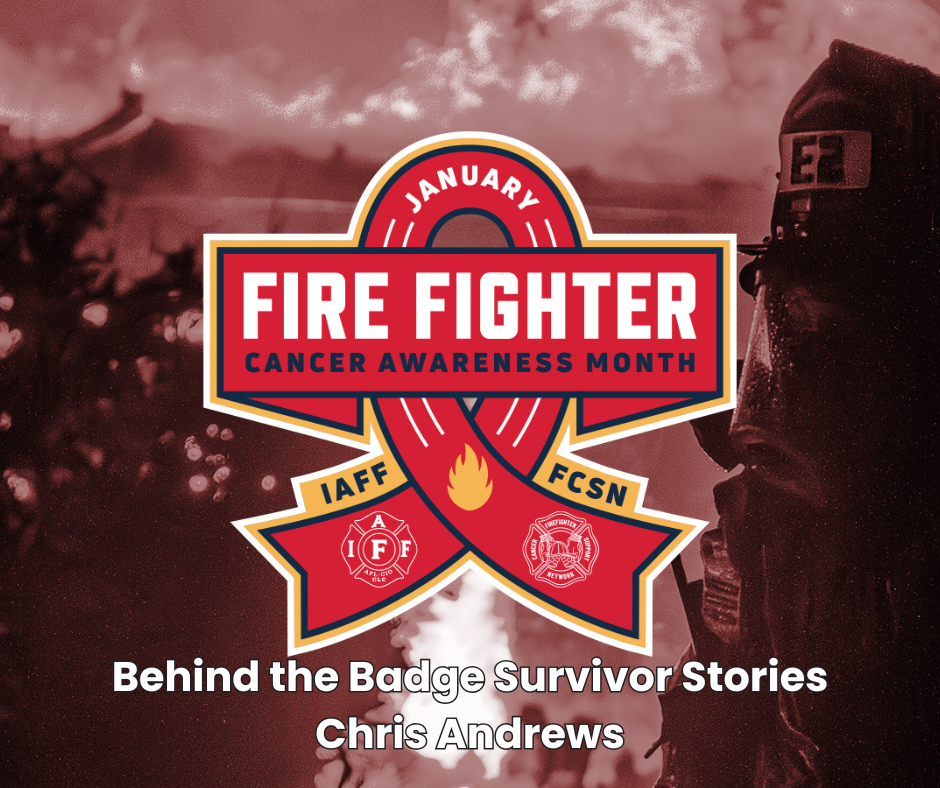
Spotlight Story

Recommended Cancer Screenings for Firefighters

Factsheets:

Websites
Note: Make sure you view the presentation in “Presenter Mode” to capture the instructor notes for the slides. (Updated for 2024)

January 6th Webinar

Vector Solutions One of a three part webinar series: Combating Occupational Cancer in the Fire Service: Research, Prevention, and Early Detection

Triage Cancer Free Webinar Announcement

During Fire Fighter Cancer Awareness Month, joining the National Firefighter Registry for Cancer is a meaningful way to take action against occupational cancer. The NFR helps researchers better understand how fireground exposures impact cancer risk across the diverse fire service, including groups historically underrepresented in research. By joining, you help protect your brothers and sisters, reduce the impact of cancer on firefighters’ families, and support the development of stronger health and safety measures for the next generation of firefighters.
Week 3: Strengthen Your Defense – Lifestyle & Wellness
Week 3 – Strengthen Your Defense – Lifestyle and Wellness
This week focuses on the lifestyle and wellness choices firefighters can make to strengthen their defense against cancer. While the job exposes firefighters to unavoidable hazards, many risks can be reduced through intentional daily habits such as eating well, staying active, prioritizing sleep, and managing stress.
The resources for this week will provide information on how to incorporate anti-inflammatory nutrition into their lives, prioritize and improve their sleep, and focus on their overall wellness.
These are not just wellness goals but can be essential protective measures that support long careers and healthier firefighters.
Behind the Badge Survivor Stories
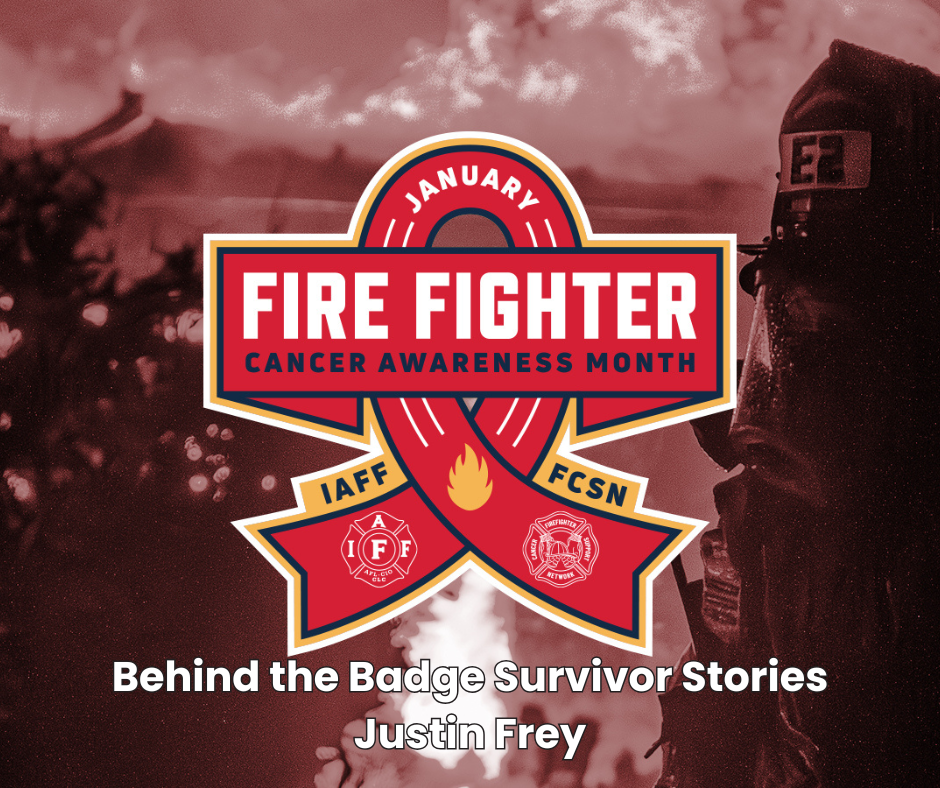
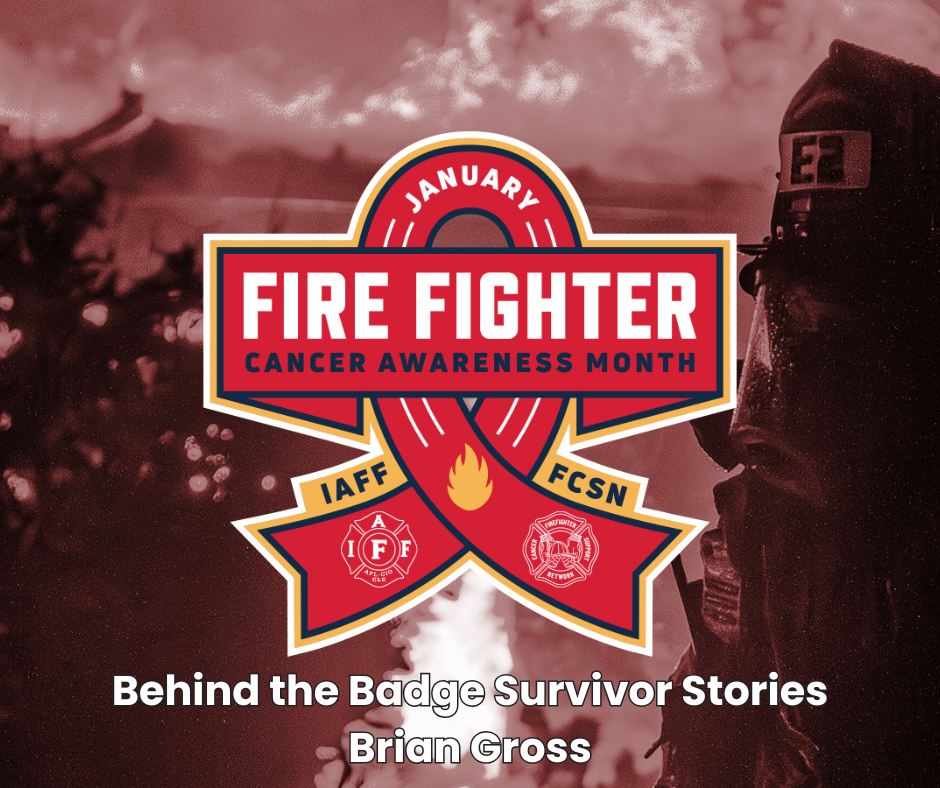

Factsheets:

Websites

Educational Presentation #1:
Note: Make sure you view the presentation in “Presenter Mode” to capture the instructor notes for the slides. (Updated for 2024)

During Fire Fighter Cancer Awareness Month, joining the National Firefighter Registry for Cancer is a meaningful way to take action against occupational cancer. The NFR helps researchers better understand how fireground exposures impact cancer risk across the diverse fire service, including groups historically underrepresented in research. By joining, you help protect your brothers and sisters, reduce the impact of cancer on firefighters’ families, and support the development of stronger health and safety measures for the next generation of firefighters.
Week 4: Behavioral Health and Cancer Diagnosis
Week 4. Behavioral Health and Cancer Diagnosis
This week focuses on helping firefighters and their support networks navigate stages of a cancer diagnosis. Not all experiences are the same, but here we can help provide support and resources that are multi-faceted between one's experience, the community, family, and ultimately bridge the gap between meaningful areas and help provide a framework for support.
The intent is to build awareness of the physical, emotional, and behavioral impacts of cancer while offering practical coping tools, communication strategies, and utilizing resources effectively.
Spotlight Story
Behind the Badge Survivor Stories
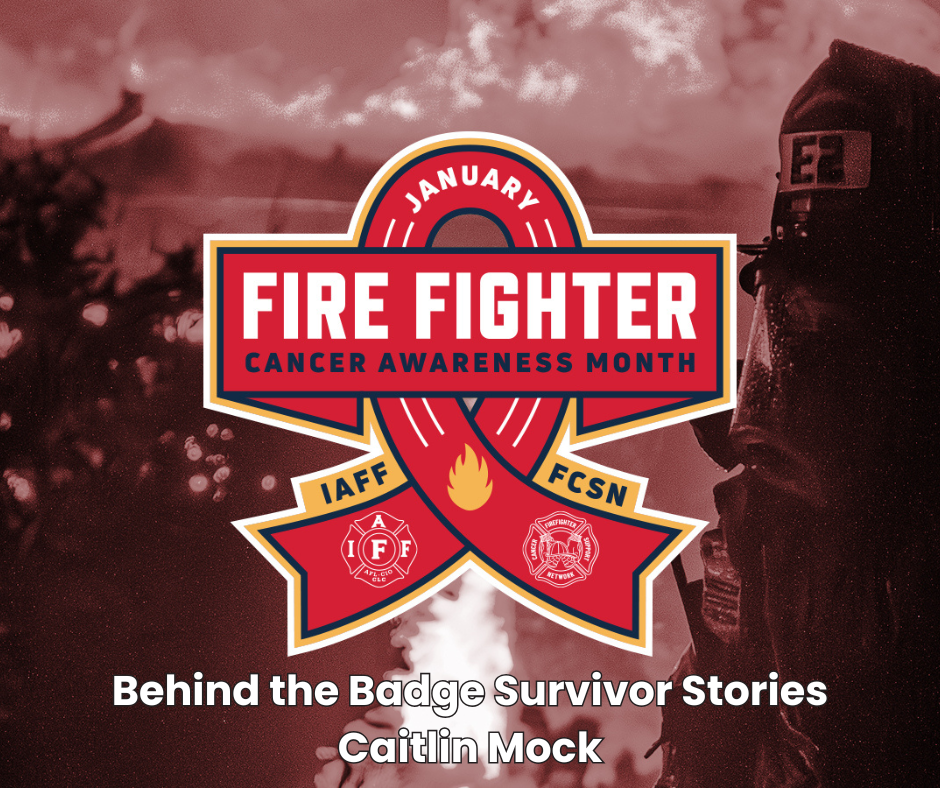


Factsheets:

Useful Websites for Support

Firefighter Cancer Support Network | FCSN in the US: (866) 994-FCSN (3276) | FCSN in Canada: (438) 600-FCSN (3276)

Patient Resource: Offers accessible, evidence-based education that helps cancer patients and their loved ones navigate care decisions, connect with treatment centers, and access financial assistance throughout the cancer continuum.
FFCAM 2026 Media Resources
Download official Fire Fighter Cancer Awareness Month 2026 communication tools, including U.S. and Canadian press release templates, sample proclamations, and talking points to support your outreach and awareness efforts.
Open Resource DriveFire Fighter Cancer Awareness Month 2026 Social Media Graphics.
Access ready-to-use Fire Fighter Cancer Awareness Month 2026 social media graphics designed to support consistent, impactful messaging throughout the month.
Open social media DriveBE THE DIFFERENCE
Donating is a quick, easy way to show your support for what we do. Even a little bit goes a long way.
donate todayREQUEST ASSISTANCE
If you are in need of help, FCSN is ready to assist you any way we can during this challenging period in your life.
GET HELP NOW